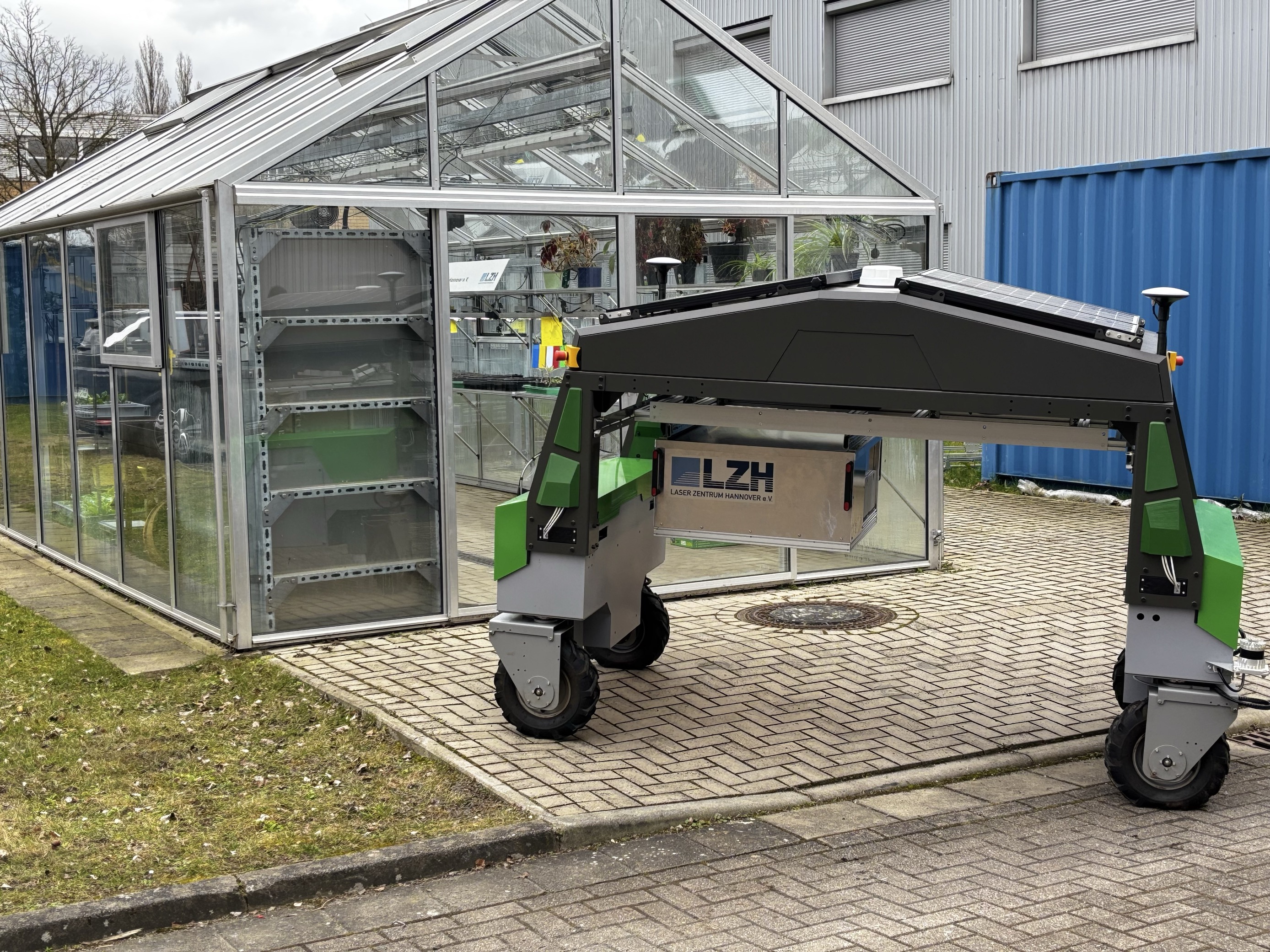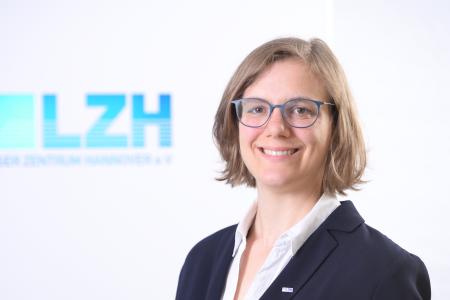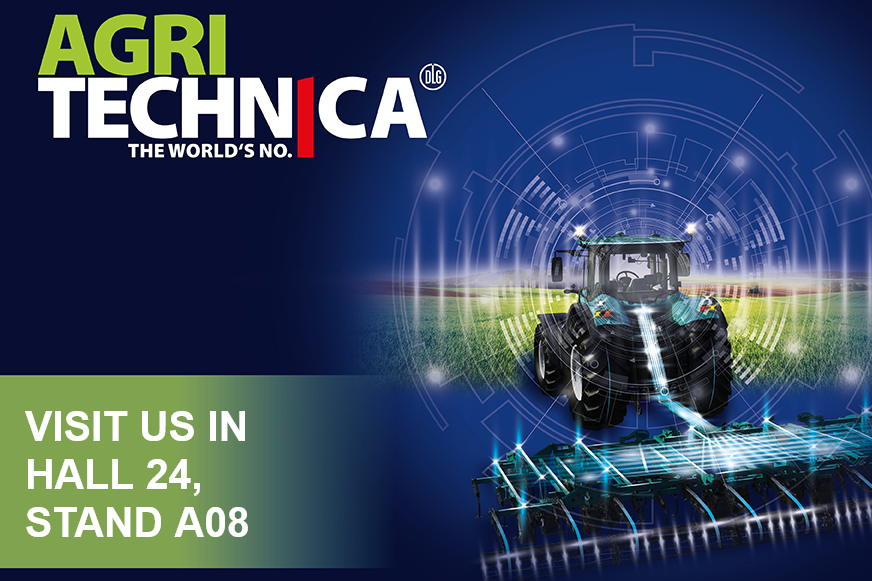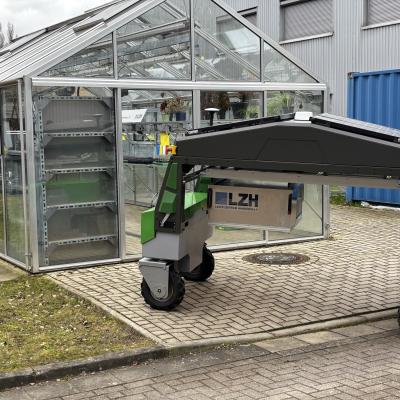Light-based weed control: LZH at Agritechnica 2025
From November 9 to 15, 2025, the LZH will showcase a specially developed laser module that eliminates weeds through targeted thermal treatment without the use of chemicals. At the fair, the laser tool is integrated into the autonomous field robot LERO3 from LZH's industry partner Nature Robots GmbH.
Focus on precision and sustainability

The LZH laser module combines artificial intelligence (AI) with laser technology to target weeds precisely without damaging the soil or surrounding crops. This method not only ensures accurate weed removal but also reduces the need for herbicides, thereby minimizing environmental impact. Together with Nature Robots, the LZH has integrated the module into an autonomous field robot designed for flexible practical use. The AI-based weed detection system for this module was developed by the German Research Center for Artificial Intelligence (DFKI). Visitors at the booth can experience the interaction between camera, AI, and laser firsthand. The module was developed within the collaborative project LALWeco, funded by the German Federal Ministry of Education and Research (BMFTR).
From grassland to crop fields: laser solutions for practical challenges
Researchers at LZH are developing laser-based, cross-platform weed control solutions — including the required AI — independently. Their work focuses on laser technology and process development, addressing practical challenges such as root weed control in grassland (Project GROW, funded by EIP Agri) and arable farming (Project STRALAMENSU, funded by the BMLEH). For specific crops such as onions (Project ERNTE, funded by EIP Agri), LZH collaborates directly with farmers to implement the technology in operational practice. The principle of selective and precise thermal damage can also be applied to pests such as flying insects. Experts from LZH are also available to discuss laser applications in greenhouse vegetable cultivation (Project LichtFalle:Praxis, funded by EIP Agri) and in open-field maize pest control (Project LuMoS, funded by the BMLEH).
Community and innovation: Agrotech Valley at Agritechnica
The LZH team will also demonstrate new opportunities that additive manufacturing offers in agriculture. At the booth, for instance, a newly developed seed coulter for the even distribution of seed will be on display.
LZH is part of the Agrotech Valley Forum e.V. network, which will present innovative technologies and research projects on smart farming, artificial intelligence, and sustainable agricultural technologies at Agritechnica.
Laser Zentrum Hannover e.V. (LZH)
As an independent, non-profit research institute, the Laser Zentrum Hannover e.V. (LZH) stands for innovative research, development, and consulting. Supported by the Lower Saxony Ministry of Economics, Transport and Building, the LZH is dedicated to selflessly promoting applied research in the field of photonics and laser technology. Founded in 1986, almost 200 employees are now working at the LZH.
The LZH offers solutions to current and future challenges with its smart photonics. Along the process chain, natural scientists and engineers work interdisciplinary together: from component development for specific laser systems or for quantum technologies to process developments for a wide variety of laser applications, for example for medical and agricultural technology or lightweight construction in the automotive sector. 17 successful spin-offs have emerged from the LZH to date. Thus, the LZH creates a strong transfer between fundamental science, application-oriented research, and industry - and uses light for innovation.


